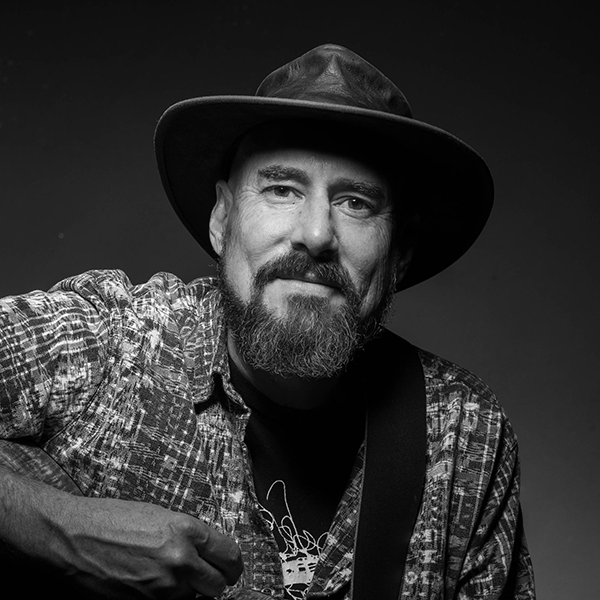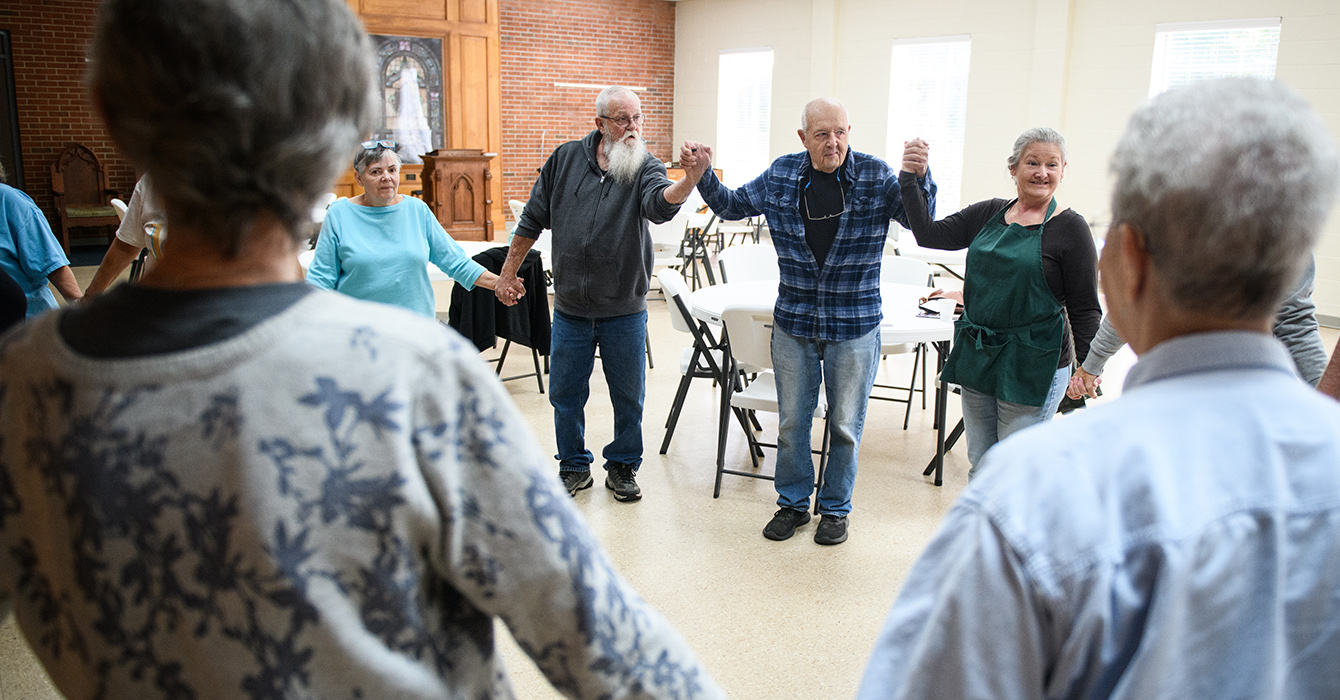 David Gushee is a Christian ethicist teaching at Mercer University who has long been a voice calling evangelicals to take up progressive social causes.
David Gushee is a Christian ethicist teaching at Mercer University who has long been a voice calling evangelicals to take up progressive social causes.
The Rev. Richard Cizik is an ordained Evangelical Presbyterian minister who was the chief lobbyist for the National Association of Evangelicals for a decade before resigning in 2008 after facing criticism for expressing openness to same-sex unions during an  interview.
interview.
Last year, the two joined with the Rev. Steven Martin, a documentary filmmaker, to establish the New Evangelical Partnership for the Common Good.
Gushee and Cizik were at Duke University as panelists for the interfaith conference “Toward a Moral Consensus Against Torture.” They spoke with Faith & Leadership about the New Evangelical Partnership for the Common Good and how to move a disparate group of people. The following is an edited transcript.
Q: Why did you create the New Evangelical Partnership for the Common Good?
Gushee: There were three strands that came together.
I was head of Evangelicals for Human Rights. At the time -- in 2008 or 2009 -- it seemed clear to me that with the mission of EHR -- the focus on torture -- that it was time either to shut the organization down or to have a broader focus.
Steve Martin has been a pastor and documentary filmmaker for years. In a sense, starting this organization provided a chance for him to have a higher profile and a bigger platform.
With Rich, the way I would say it is that Rich needed a new organizational home.
Cizik: So we all needed each other for various reasons. I needed someone to work with me and give me accountability. EHR needed a new forum.
I had gotten the call from David in early 2009, and I was a little bit timid at first and a little bit resistant.
In my selfish, individualistic, American way, I was thinking, “Oh boy, I wonder how far along I can get this on the road before I take the risk of joining with my colleagues and finding that I would then be working for somebody else again.”
You have to understand, I was going through shock. The idea of then submitting myself to an organization and a board, and having to deal with someone equally as strong and compelling as David is, I was thinking, “Gosh, you know, do I really want to do that?” So I had to come to terms with that.
In desperation, finally, after about three or four months, I came to the humility of saying, “You were right. I can’t do this on my own.”
Q: Rich, is the idea for the New Evangelical Partnership to continue to do the kind of lobbying work that you’ve done but with a vision that you can embrace more fully?
Cizik: Yes, to be able to effect public change with a structure that fits my own politics, because I was beating my head against the wall for many years. Truth be told, I would come home from the NAE board meetings depressed. I’ve never said that publicly before, but I would come back feeling concerned, at the least, and depressed at the worst, because I felt like there weren’t people who shared my passion.
I thought I was building an executive committee of other like-minded people, but when push came to shove, the reality is even those friends weren’t willing to push back. Even though there are some real progressive voices in the NAE, I don’t think they were willing to pay the price themselves to say to the rest of the board, “This is something we should try.” They weren’t willing to say to the religious right any longer, “You’re wrong.”
Gushee: I think the original question was kind of, “Why partner with each other?” In my book “The Future of Faith in American Politics,” I suggested that there was an evangelical center that was distinguishable from the religious right and the left, but the center didn’t really have an organizational embodiment per se.
So, especially given the polarizing forces in American politics, the center easily disappears.
There was a need for an organization independent of the centrifugal forces right and left that was able to stand on its own two feet -- to follow what we understand the implications of Scripture and our faith to be without fear. Any organization that has the potential to be impacted by the religious right, in particular, you’re always in fear that somebody’s going to come get you from the right. It happened to Rich. It’s happened to me in different ways.
Likewise, if you’re in an organization that is funded by or loyal to the left, you can always get nailed from the left. You’re not liberal enough on this issue. You’re not saying what we want you to say.
We wanted a genuinely independent voice, in which we could follow God’s truth where we believed it led.
Cizik: The pressure from the left is to drop the faith factor and the pressure from the right is to be uncivil. There’s a gaping hole in the middle.
Q: What do you mean by the term “common good”?
Gushee: The “common good” is a term out of the Christian ethical tradition, especially the Catholic ethical tradition, that supposes that the goal of social institutions -- whether it’s the economy or government or education or any other social institution -- should be to serve the human community and advance the common good. So the vision is that as human beings, we’re in this together.
Regardless of faith convictions or commitments, we are in community together, and we ought to care about the well-being of every school and of every child and of every social institution -- of anything that has to do with the human good and well-being.
So the common good says you evaluate economic systems and how they function, not based on profit margin, but based on the impact on the well-being of everyone, especially those who are most vulnerable, and especially those who do not have the power to advance their own interest very effectively.
I actually think that the Christian right never had a well-developed theology of the common good. The theology they had was more Christian civilization and more kind of an inherited Christendom model, but with a narrow focus on family value issues.
They never had a vision of what an economy ordered for the well-being of the whole would look like or what a foreign policy of the United States ordered toward the well-being of the whole would look like. The extent of their vision was “no abortion” and “no recognition of homosexuality.” That was not adequate.
Q: How do you move people toward the center?
Gushee: Generational changes are moving them already. [The Christian right] do not speak for anybody under the age of 35, it seems. I also think that the manifest failures of the Christian right -- failures theologically, failures strategically, compromises with politics -- have discredited the Christian right in the eyes of a lot of people.
The idea that the way God’s mission in the world is accomplished is by winning elections -- get Republican candidates elected, get a Supreme Court the way you want it, and this equals the reign of God in the world -- it’s just so flawed theologically, and I see fewer and fewer people in general who are attracted to that.
There’s much more attraction to the church as a community of people who are following Christ and attempting to live faithfully the way of Jesus Christ.
Engaging politically is one aspect of that, but it’s really what they do every day. It’s how they spend their money and how they marry and how they do sexuality and how they handle eating and spending and the economy and so on and what they do about violence.
So the church learning how to be a faithful community is, I think, kind of where the action is. That’s where the action has shifted in terms of the scholarship, and it’s also where I see young people, too.
Q: How do you tap into these changes in the pews in order to impact public policy?
Cizik: I think you have to persuade some young people. They’ve been turned off by the religious right. They’ve been turned off by politics in general, and they’re ready to chuck it all.
Gushee: I am seeing young people who do want to have an impact on public policy. They just don’t want it to be the religious right’s impact on public policy.
Also, I tend to see people mobilized by specific causes now, as opposed to an umbrella agenda. The issue of human trafficking wasn’t even on the agenda 10 years ago, and it’s a major issue for all kinds of Christians. Factory farming, environmental concern, what people eat, living more gently in relation to God’s creation -- these are issues that are bubbling up from among especially younger Christians, which are surprising us in some cases.
They’re voting with their lives. It does seem that the politics are lagging behind the changes that are happening in lifestyles.
Cizik: We are creating a 501c4 and presently marketing a proposal to mobilize these younger evangelicals, not for purposes of elections as much as to communicate our stands on the issues.
To say, “We don’t want to know whether you’re a Republican or Democrat, but where do you stand on these issues of climate change? Of poverty? Of torture and human rights? Of economic empowerment?”
On all these issues we intend to take our issue mobilization into the public square and hold politicians accountable. So we aren’t out for the betterment of one party; we’re not about electing Republicans, and we’re not about electing Democrats either. We’re about electing politicians who understand the importance of these issues.
Gushee: Imagine a situation where in a district that has lots and lots of Christians, the majority of the Christians in that district will not elect somebody who is a climate change denier. They just won’t, because they want to be good stewards of God’s creation, and they’re taking the science seriously. I don’t care whether the person that’s elected is a Republican or Democrat on that issue, I just want somebody who will take the environment seriously.
Similarly, if we’re going to be doing budget cutting in this country, I want a district that has a lot of Christians to include a lot of people who will want to protect the programs that affect the most impoverished and those who are most vulnerable and those whose lives may be lost if you cut a budget item by 50 percent.
I would hope that if we had the most conservative Republican in that seat, there would be constituents who are Christians and churchgoers who would tell them, “Don’t you consider cutting that budget.” That’s what we’re going for.








